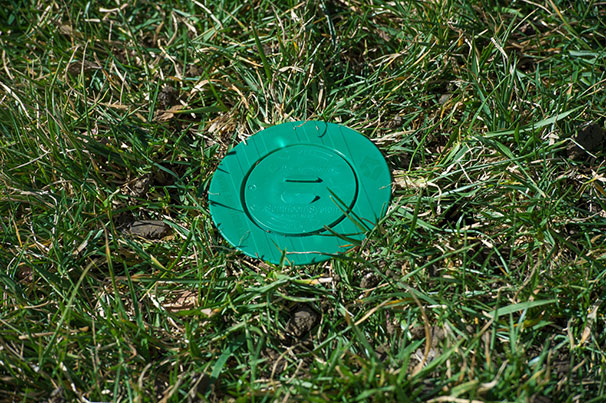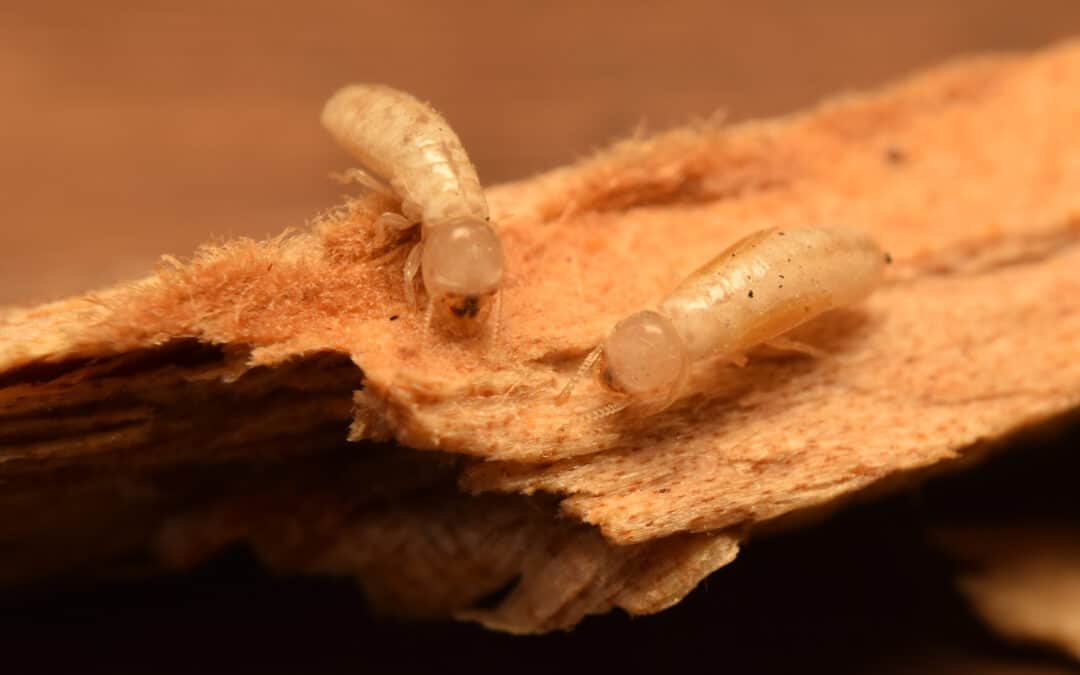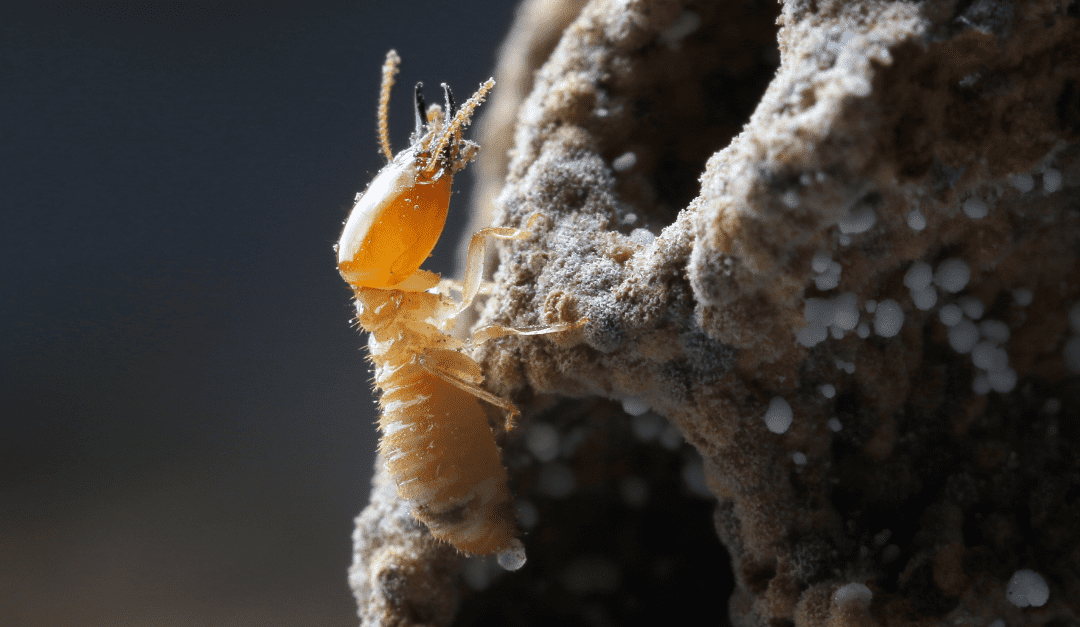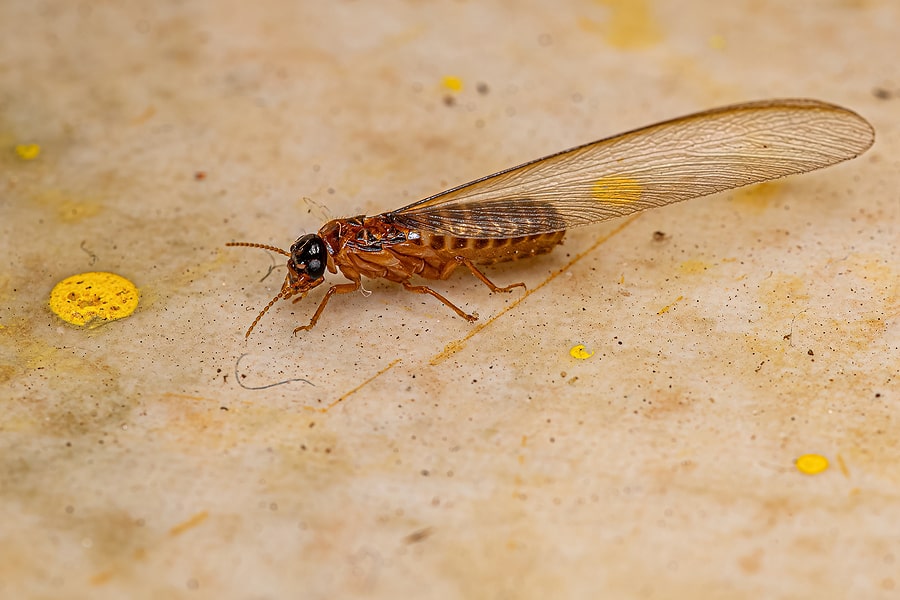READY TO GET STARTED?
REQUEST A FREE ESTIMATE
Fill out the form below or call (888) 466-7849 for a free, no-obligation estimate.

Florida is notorious for its termite problem, and drywood termites are a common termite species found in homes. These pests can cause considerable damage to our homes, leading to costly repairs. It’s important for homeowners to understand the methods of preventing termites from invading their homes. Check out common tips Florida homeowners can utilize to prevent a drywood termite infestation.
Drywood termites are extremely small, typically ranging from 3/8 in length, but termite soldiers and workers can be even smaller. These pests can easily enter your home through the tiniest crack or gap. It’s important to inspect your home for any openings, including around doors and windows, and even the areas around your utility pipes. Make sure to seal them up with caulk or another appropriate sealant as soon as possible. For areas in your home that must be left open, consider using mesh screens to cover them.
Drywood termites can easily infest lumber, firewood, and wood furniture. Before bringing any of these items inside your home, it’s essential to inspect them first. Drywood termites will also infest furniture, including old pieces of antique furniture and built-in cabinets utilizing second-hand furniture.
Swarmers, or flying termites, are attracted to light sources, making it essential to eliminate them, especially at night. Particularly, drywood termite swarms like to surround light bulbs and lamps during their flight. At night, look to minimize light sources by turning them off and keeping your windows and curtains closed to avoid attracting them. Consider replacing the porch and floor lights with insect-resistant yellow bulbs to help repel them or motion sensor lighting around your home.
Regular inspections can help you catch any signs of a drywood termite infestation early, so it’s important to recognize their signs. Inspect your home for small holes in wood, piles of droppings, or wings shed by the termites. If you notice any of these signs, it’s best to call a professional for help immediately.
Sometimes, the best way to prevent a drywood termite infestation is to consider hiring your local professional pest control company to inspect your home regularly, treat any existing infestations, and provide a prevention plan to avoid a future infestation. These professionals will have the knowledge, experience, and tools necessary to detect and eliminate these pests effectively.

Living in South Florida can come with many perks, including lots of sunshine and beautiful ocean views. Unfortunately, it can also come with termites! These silent destroyers can cause significant damage to your home from the inside out. There are several treatment options out there to help keep termites under control, including the Sentricon Always Active® system. Here is more information on subterranean termites, along with ways to prevent and eliminate them.
Let’s talk about these stealthy troublemakers! Subterranean termites are the most common type of termite found in residential areas. They thrive in moist soil and create underground colonies, where they build intricate tunnel systems to access sources of food. Their damage can go unseen for years, hence the nickname, Silent Destroyers.
When it comes to termite control for subterranean termites, Sentricon Always Active® baiting system stands out as a highly effective and eco-friendly solution. The stations are strategically placed around your property, forming a protective barrier.
Once termites find the bait, they take it back to their colony for complete elimination. Having Sentricon Always Active® installed for your home ensures continuous protection against subterranean termites, year-round. Our team of experts regularly monitor the bait systems, keeping the efficacy as accurate as possible.
By implementing simple prevention measures you can lessen the chances of these termites taking over. If you’re ready for the experts to get involved, give your local pest control company a call today for a FREE inspection!

In South Florida, our warm, humid, and tropical weather is the perfect environment for termites to thrive. If these silent destroyers invade, their damage to your home or property can be devasting and could cost thousands of dollars in repairs. In Florida, there are two common types of termites that homeowners should be aware of: drywood termites and subterranean termites. To prevent these termites, it’s important to understand their differences and methods to keep them from infesting. Read more to learn about drywood termites and subterranean termites.
Preventing both types of termites is essential to protecting the structural integrity of your home. When preventing subterranean termites, look to eliminate any moisture problems from your property, including that your yard has good drainage, fixing leaky pipes, and removing items that can hold water like buckets or old tires. Likewise, make sure that you are being cautious of the areas where there is soil-to-structure contact. For drywood termites, keep firewood at least 20 feet from the home and elevated off the ground, and regularly inspect your deck or patio for signs of damage.
One of the best ways to ensure your home is termite free is to get regular termite inspections from your local termite control company. These professionals will be able to give your home a thorough inspection and recommend the best prevention plan to avoid future termite infestations.

Summer is a wonderful time of year to enjoy outdoor activities, but it’s also the season when termites are most active. Termites are known for causing extensive damage to homes and properties, and they can quickly become a costly problem if left unchecked. To properly prepare for a termite-free summer, follow these termite control tips.
The first step in preparing for a termite-free summer is to conduct a thorough home inspection. Look for signs of termite activity, such as mud tubes, wings, and damaged wood. If you find any evidence of termites, contact a pest control professional immediately.
Termites are attracted to moisture, so it’s important to eliminate any moisture sources in and around your home. Fix any leaks in your plumbing or air conditioning system, and make sure your gutters are clean and functioning properly.
Termites are attracted to wood, making it crucial to keep any wood or wood-based materials away from your home’s foundation. This includes firewood, lumber, and any wooden structures such as decks or fences.
When building or renovating your home, consider using termite-resistant materials such as concrete, metal, or pressure-treated lumber. These materials are less attractive to termites and can help prevent infestations.
Regular termite control services are an essential part of preventing termite infestations. A termite control professional can help identify and eliminate any termite activity in and around your home, as well as provide preventative treatments to keep termites at bay.
Get ready for termite season by giving your local termite control company a call today!

Termites can wreak havoc on your home, causing substantial and costly damage. These household pests are stealthy, often going undetected for long periods of time. Preventing termite damage is critical, and now is the time to get started.
Termites begin swarming in the South in early spring. So, if you don’t already have a termite control plan, now is the time to consider acquiring one. While swarming termites may not cause structural damage, they are an indication that a termite colony is active nearby. This might result in catastrophic structural damage to your property, resulting in repair expenses in the hundreds of thousands of dollars. Although spring and summer are peak swarming season, termites can be active year-round, especially in warmer climates like ours.
There are various techniques of termite management, and determining which one is best for your property can be difficult. After all, we’re talking about safeguarding one of your most valuable investments! Because termite damage isn’t usually covered by homeowners insurance, it’s imperative to not only get your property treated, but also to have a solid termite guarantee.
If you understand how termites work, you could try your hand at DIY termite control. There are a variety of options available for this, ranging from simple liquid barrier treatments to termite baiting systems. If you have any slabs linked to your home or a basement, this can be a difficult task. To keep termites out, a liquid barrier must be comprehensive with no gaps.
If you have active termites or damage, several pest control firms will offer a liquid treatment. This offers both immediate and long-term termite protection. Make sure your termite treatment comes with a decent warranty, especially one that covers termite re-treatments and any damage caused after treatment.
This method of termite treatment is great if your home is still under construction. The wood structure is coated with borates, which are soil elements that provide long-term termite protection while also repelling common domestic pests.
Baiting systems have been shown to be efficient at eliminating entire termite colonies underground around your home, are less invasive than liquid treatments, are suitable for both new and existing structures, and typically come with a lifetime warranty. It is also the most environmentally friendly solution to defend your home from termites, as it eliminates the need for hundreds of gallons of chemicals. Monitoring devices are placed strategically around your property’s perimeter. The stations have a bait tube that termites are drawn to.
If you have a problem with termites or any other household pests, contact your local pest control company for an evaluation.
Common Rats and Mice You Might See this Spring
Do Water Moccasins Swim on Top of Water?